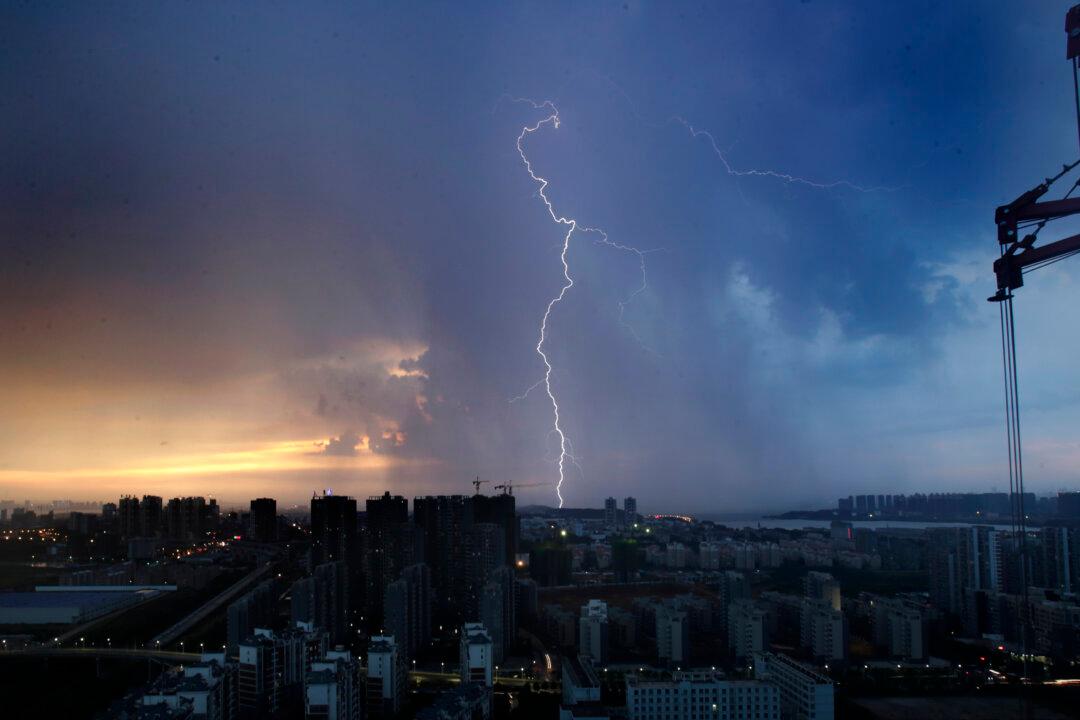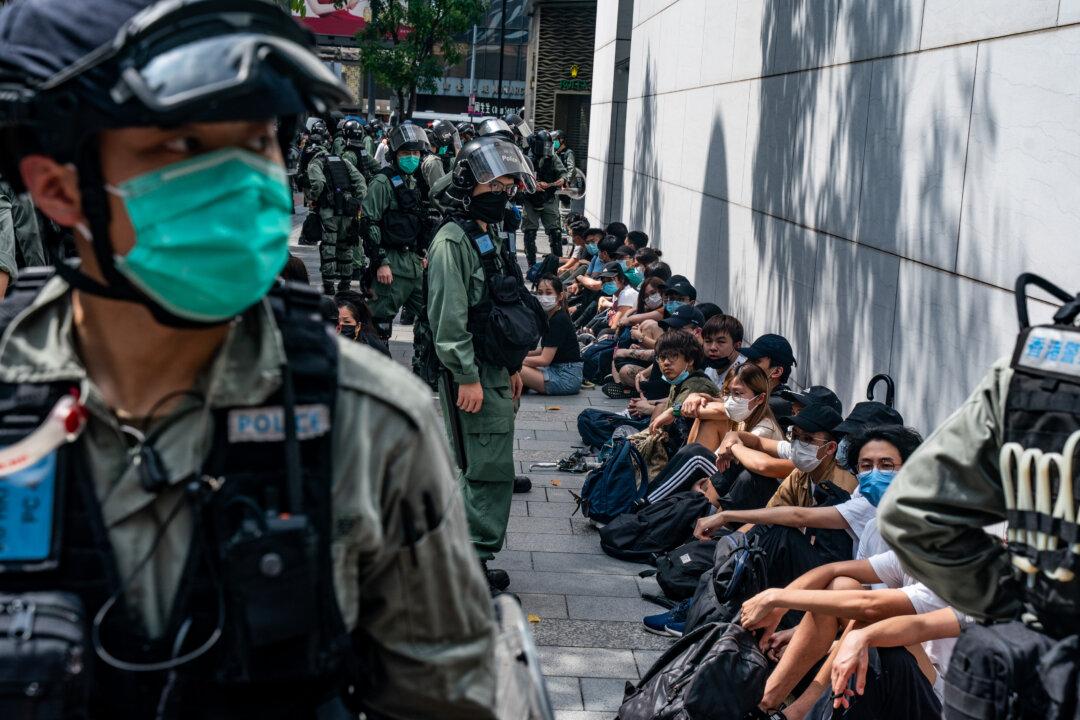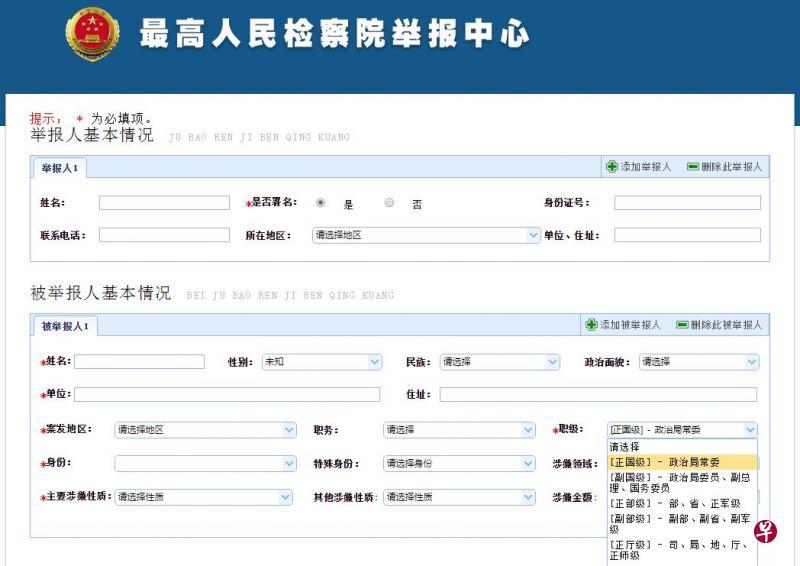News Analysis
Real estate companies aren’t safe from Chinese Communist Party leader Xi Jinping’s anti-corruption campaign, which is aimed at investigating his rival Jiang Zemin’s supporters and purging them from the Party.
More than 50 provincial and ministerial level officials have been sacked in Xi’s campaign, most of them belonging to the faction of former Party leader Jiang Zemin. A number of real estate companies associated with the Jiang faction have also gotten in trouble lately.
After Xi’s campaign took down former security czar Zhou Yongkang, one of Jiang’s top supporters, mainland Chinese real estate companies with connections to Zhou began to run into problems.
According to sources familiar with the situation, many senior officials’ downfalls have been connected with real estate business. Xi’s cleanup of the Jiang faction has extended to the economic sphere, and it is expected that there will be major economic policy adjustments and the wealth will be reshuffled, the sources said.
Companies and officials that are affiliated with Jiang’s faction will be gradually cleaned up, and contracts signed by the Jiang faction with foreign governments and companies might well become useless in the future, the sources said.
Kaisa Listings Suspended
On Dec. 3, Hong Kong-based Kaisa Group Holdings declared out of the blue that its stock trading would be suspended. The reason for the suspension is not yet disclosed, but the company is suspected to have been closely involved with Zhou Yongkang.
The day before, Kaisa’s more than 2,000 real estate listings in China’s Shenzhen city were “locked,” or forced to stop selling, by Shenzhen authorities. Analysts said it was almost unheard-of in mainland China for real estate listings of listed companies to be put in sale suspension by local authorities. Kaisa’s share price dropped 8.54 percent that day.
By the evening of Dec. 3, about 900 listings near Kaisa Holiday Plaza were restored for normal sales, but the remaining 1,300 listings are still locked.
The Shenzhen Land Planning Commission said it was not convenient to disclose the reason and timing for the locking. However, the mainland media China Times quoted inside news from the Longgang District Land Bureau, saying that the Shenzhen Land Planning Commission asked Longgang District last week to lock unsold Kaisa real estate listings.
The inside source said it was not due to a specific project problem. “Otherwise they would not ask us to lock all of them,” he said. “Our analysis is that Kaisa has some irregularities, and the temporarily locking is to prevent the transfer of assets.”
Chinese media have reported that Kaisa was involved in a real estate project with Zhongxu Investment Corporation, a company under the control of Zhou Yongkang’s son, Zhou Bin.
Other Companies
Agile Property Holdings board chairman Chen Zhuolin, widely rumored to be Zhou Yongkang’s godson, was put under residential surveillance on Sept. 30. Agile’s stock trading was suddenly suspended on Oct. 3 just before the opening of share trading.
When its trading was restored on Oct. 13, its share price suffered a serious setback, and its market value evaporated by HK $3.4 billion (US $439 million) in one day. Its business in mainland China has also been heavily affected.
Fantasia Holdings, another company connected with Zhou Bin, is a family business of former Party vice president and Jiang supporter Zeng Qinghong. Its founder, Zeng Qinghong’s niece Zeng Baobao, is also under investigation.
Wu Xu, the chairman of real estate company Hyupshin Group, was arrested for being involved in the case of China Resources chairman Song Lin, another official who was ousted for corruption.
Wang Shi, chairman of leading Chinese real estate company Vanke, said: “Mainland Chinese real estate businessmen can easily be put into prison; bribery conviction is very easy. Because I do not pay bribes, I cannot get land in good locations.”
The Jiang faction and its affiliated interest groups have controlled much of China’s economic field. They have accumulated a large amount of wealth through real estate business and land corruption operations.
The website of the Party’s Central Commission for Discipline Inspection stated in October that real estate is the area hardest-hit by official corruption. Collusion between government officials and businessmen to occupy extra residential house and office space is a widespread phenomenon, and 20 of the 21 inspected provinces have been found to have real estate corruption.
Risk for Investors
Lawrence Ye, the vice president of MSCI’s real estate investment resource company IPD, said that for the mainland Chinese real estate market situation, “political risk will be the most important factor for foreign investors to consider.”
Ye said that the mainland real estate industry involves land and requires government approval, so the real estate businessmen and government officials are closely related. Therefore real estate corruption rumors abound.
Because foreign investors do not understand the Chinese market, they often need to work with mainland companies in order to enter the mainland market. However, they are increasingly realizing that if they do not understand China’s political environment, they might incur losses if they choose the wrong working partners.
Ye said that political uncertainty, economic slowdown in China, heavily reduced profits, and other factors have led to the slowdown of foreign investment in mainland China.
Translated by Susan Wang. Written in English by Sally Appert.




